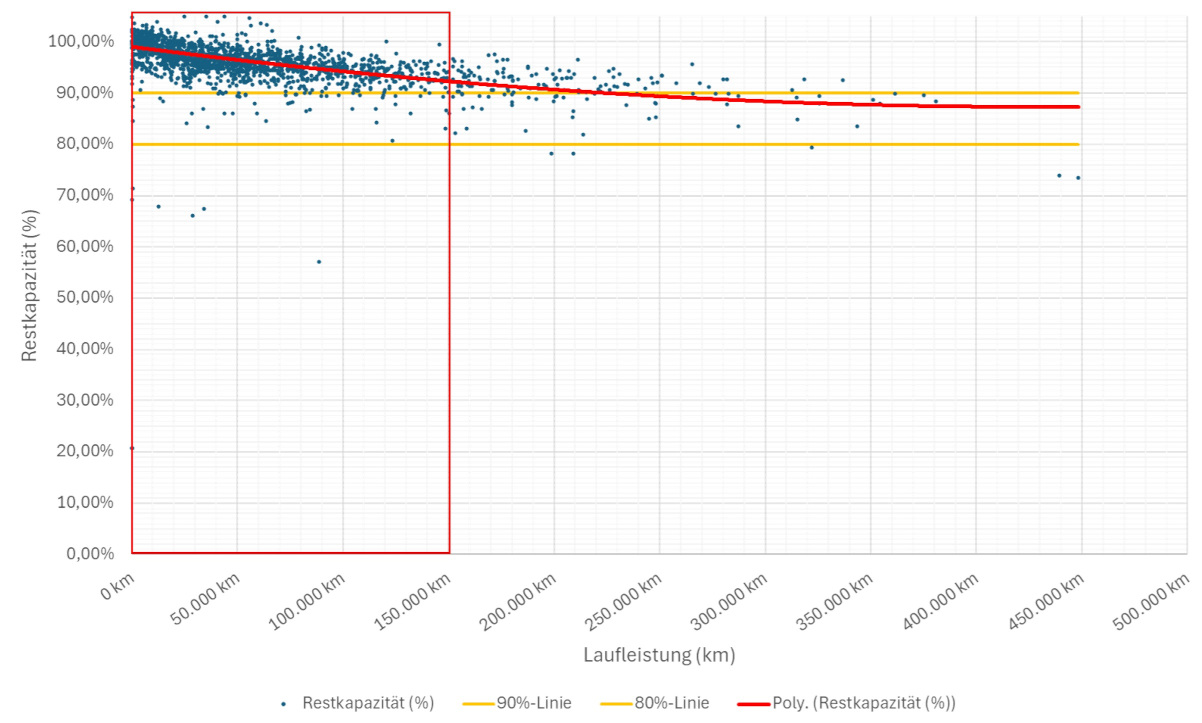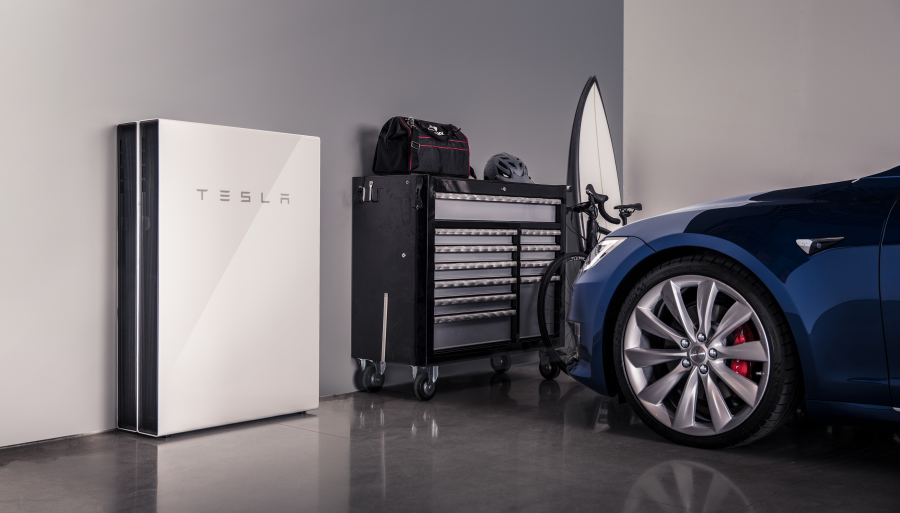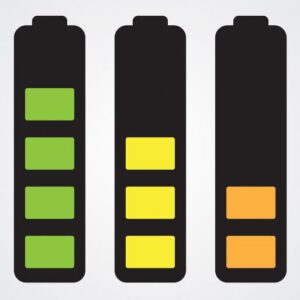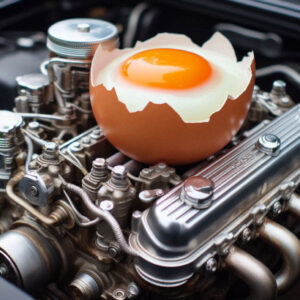Durability and recycling of car batteries are hot items when comparing battery electric cars with fossil fuel cars. Often people think of their smartphone and its lifespan of 2 years. The degradation of the battery causes this relatively short lifetime. People use this experience in their assumed lifetime of electric cars. But this assumption is simply incorrect.
Prof. Maarten Steinbuch of Eindhoven University of Technology analyzes the real life ranges of Tesla batteries with respect to the driven distance. Also Troy Teslike is gathering information from Tesla cars. You can see the result in the figure below. It shows that distances up to 500,000 km will be no problem for these batteries. The mean range percentage over 320.000 km (200.000 miles) is still about 90%!

Batteries used in electric vehicles can have an estimated mileage of 1,000,000 kilometers. After that they are not scrapped. They can be reused and have a second life in energy storage applications.
Recycling of car batteries
Since 2019 it is possible to recycle up to 70% of lithium of batteries used in cars. Cobalt can be recycled to up to 90%. The biggest European battery recycling company is in Antwerp (Belgium). It is owned by Umicore. More and more companies are investigation the optimization of recycling of car batteries.
Conclusion
Batteries are the heart of an electric car. At this moment the lifetime of car batteries is much longer than the typical lifetime of a fossil fuel car engine. Batteries can last up to 3x longer (500.000 kilometers) and even after that they can be used in energy storage applications.
Only after that second life they need to be recycled. This is possible already for up to 70% and a lot of companies are doing research how to get that percentage up to 100%. Cobalt is an issue at this moment, but can be recycled for up to 90%. Moreover, the first batteries do not contain any cobalt anymore: lithium iron phosphate batteries. Normal batteries only contain about 1% of lithium. This is a few kilograms per battery. Complete recycling is not possible at this moment but is improving enormously.




